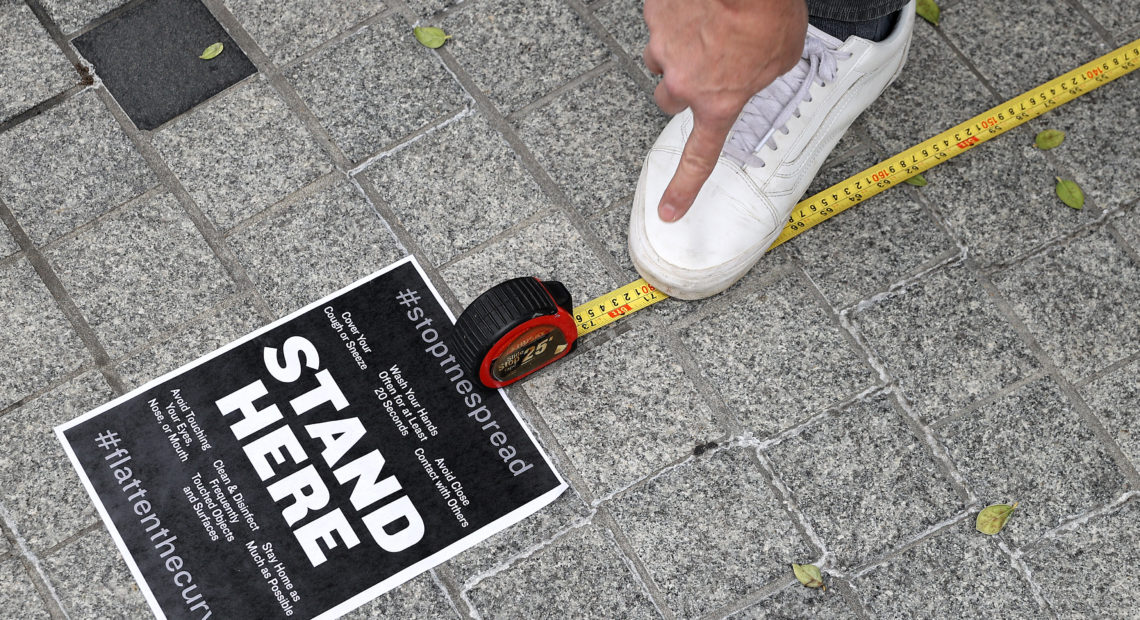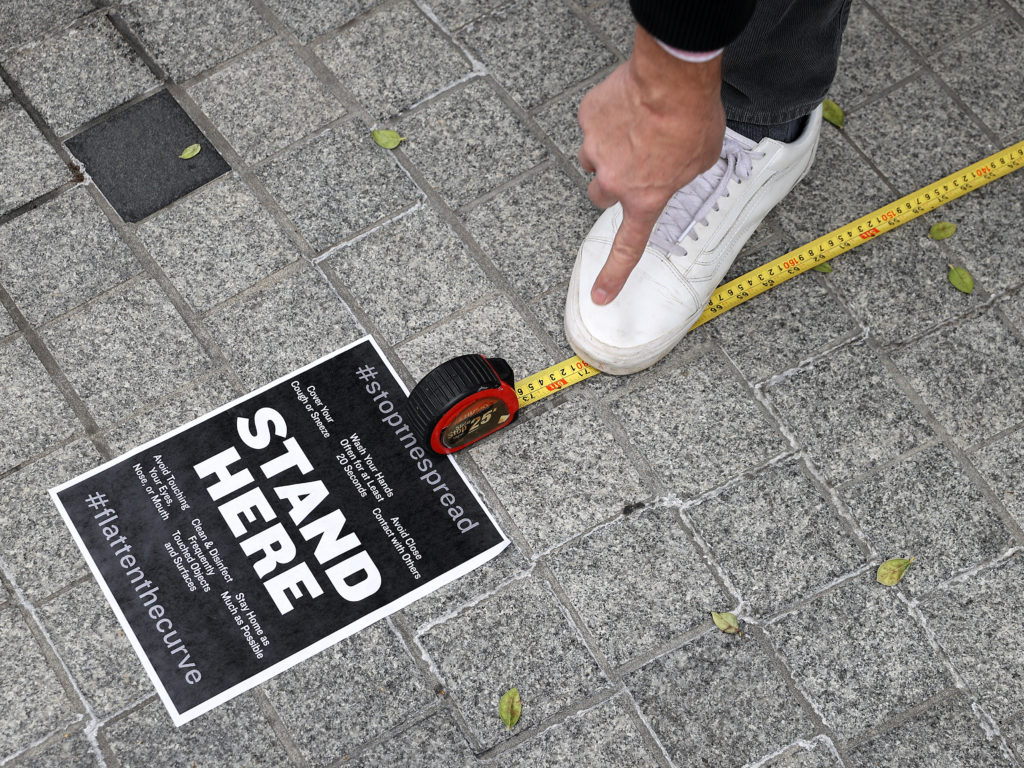
Social Distancing Yields Worries Of Blood Shortages As Donation Drives Get Canceled
BY JEFF BRADY
Public health officials encourage “social distancing” now but they also worry it is leading to a shortage of donated blood.
The American Red Cross, which supplies about 40% of the nation’s blood, says donor drives across the country have been canceled “at an alarming rate” and the organization now faces a “severe blood shortage.”
“In really good times we may have five days of inventory available for our hospital clients and now we’re running at a day or day-and-a-half in some cases,” says Chris Hrouda, president of Biomedical Services for the Red Cross.

Workers use a tape measure mark spaces six feet apart for people to wait in line safely as they convert the outdoor plaza in front of Zaytinya, one of Chef José Andres’ restaurants in Washington, D.C. Efforts to contain the coronavirus are affecting blood donor drives and supplies.
CREDIT: Chip Somodevilla / Getty Images
As of Tuesday, the Red Cross says about 2,700 blood drives had been canceled because of concerns about people gathering at workplaces, college campuses and schools — all places where drives typically take place. The organization estimates that’s resulted in 86,000 fewer blood donations because 80% of the blood it collects comes from drives held at these locations.
At the University City Science Center in Philadelphia a blood drive scheduled for Wednesday was canceled when the center shut down and staff began working remotely.
“We’re disappointed to have had to cancel the blood drive but given the CDC, state and city guidelines for social distancing compounded by the fact that we aren’t set up to provide this service in an area that is properly portioned off, we made the tough decision to cancel tomorrow’s drive,” says Tracy Brala, vice president of Ecosystem Development.
The center urged donors to contact the Red Cross to find another place to donate blood. The organization does have its own locations that remain open but they can’t expand their operations quickly enough to fill the gaps.
Hrouda says the Red Cross currently is shipping out more blood than it’s bringing in, so it’s begun shipping less than hospitals order.
“As of this week we’ve started shorting all our hospital customers to 75% of what they’ve requested and we’ll evaluate pretty quickly if we need to take that down to 50%,” says Hrouda.
That has health officials raising the alarm and calling for donors.
“To ensure an adequate blood supply we need people to come out and donate blood,” says Dr. Peter Marks, director of the U.S. Food and Drug Administration’s (FDA) Center for Biologics Evaluation and Research. The FDA regulates blood centers.
Marks says he’s aware some people might be concerned about donating blood in the age of COVID-19.
“Blood donation centers are a very safe place to be. People take precautions to make sure those centers are spotless clean and that people who are sick don’t enter them,” Marks says.
The Red Cross says it has put new measures in place, including checking the temperature of staff and donors before they enter a drive location. Hand sanitizer is provided and used throughout the donation process. Beds are spaced in accordance with social distancing guidelines. And even more attention is given to disinfecting surfaces and equipment.
Hrouda says type O-negative blood is nearly always in short supply because it can be used in transfusions for any blood type. But right now he says there’s a shortage of all blood types.















